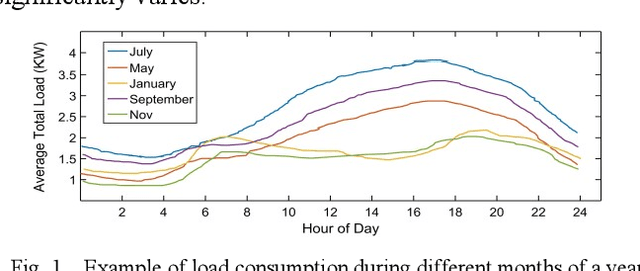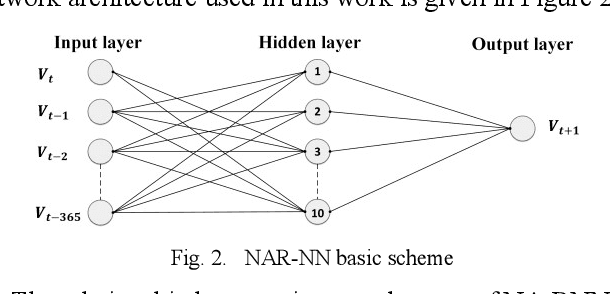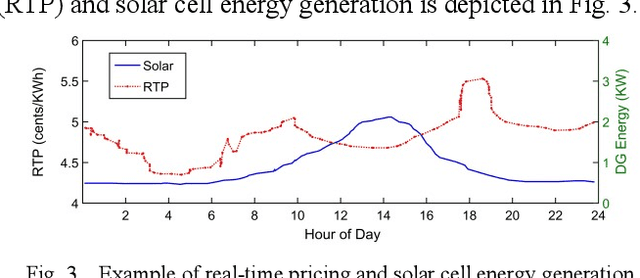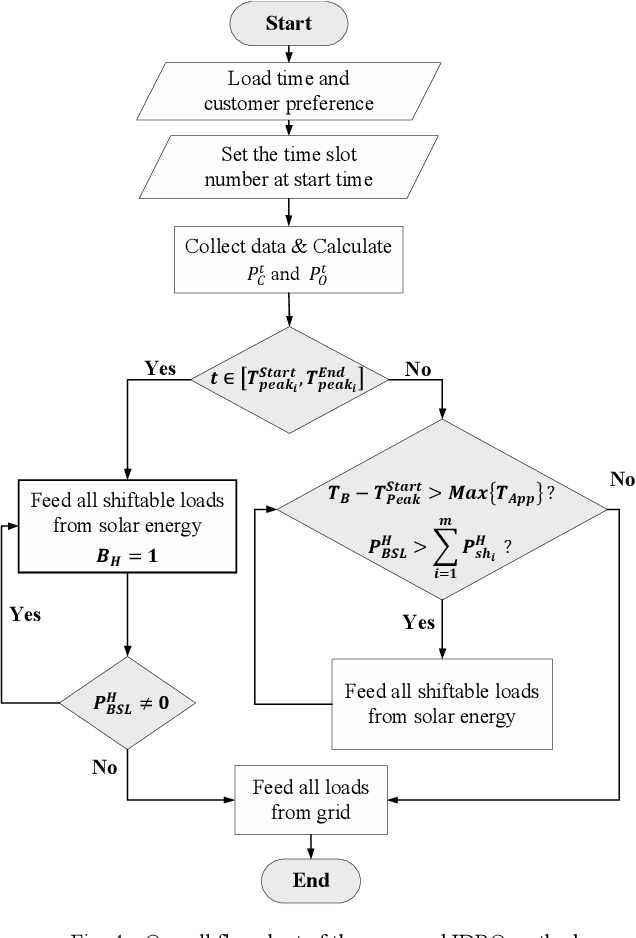Abolfazl Rahimnezhad
Smart Households Demand Response Management with Micro Grid
Jul 08, 2019



Abstract:Nowadays the emerging smart grid technology opens up the possibility of two-way communication between customers and energy utilities. Demand Response Management (DRM) offers the promise of saving money for commercial customers and households while helps utilities operate more efficiently. In this paper, an Incentive-based Demand Response Optimization (IDRO) model is proposed to efficiently schedule household appliances for minimum usage during peak hours. The proposed method is a multi-objective optimization technique based on Nonlinear Auto-Regressive Neural Network (NAR-NN) which considers energy provided by the utility and rooftop installed photovoltaic (PV) system. The proposed method is tested and verified using 300 case studies (household). Data analysis for a period of one year shows a noticeable improvement in power factor and customers bill.
 Add to Chrome
Add to Chrome Add to Firefox
Add to Firefox Add to Edge
Add to Edge